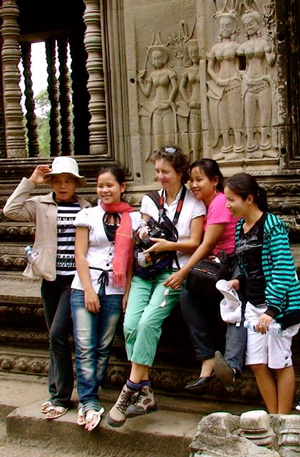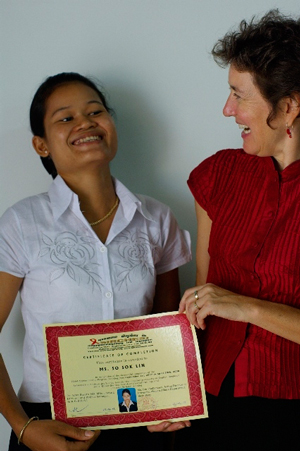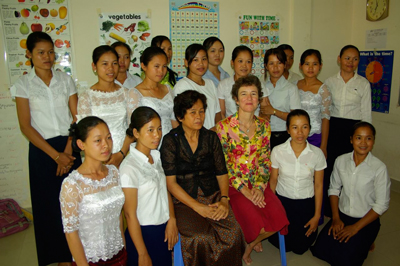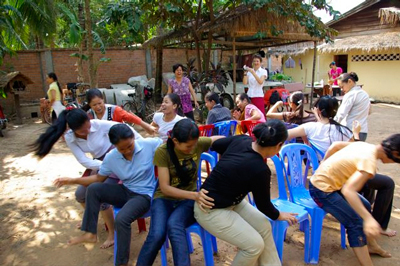[ LLL SIG Website ][ LLL SIG Publications ][ This Issue's Contents ]

Volume 4, Issue 2 [September, 2008]
The LLL SIG and GALE SIG are proud to co-sponsor
Teaching Hotel English to Cambodian �gBeer Girls�h
A Presentation by Neela Griffiths
November 1, 4:10 - 5:10 p.m., at the JALT National Conference 2008
The Gender Awareness in Language Education Special Interest Group (GALE SIG) is dedicated to researching gender and its implications for language learning, teaching, and training; to improving pedagogical practices and developing language teaching materials, inclusive of gender and gender-related topics; to raising awareness of workplace and human rights issues related to gender for language professionals; and to increasing networking opportunities among language professionals interested in teaching, researching, and/or discussing issues related to gender and language education.
LLL SIG, The Lifelong Language Learning Special Interest Group, recognizes that language study can be valuable for adults of any age, bringing personal satisfaction, fostering better communication, and offering improved opportunities in the workplace and society. The SIG supports language instructors who are teaching young, middle-aged, and older adults by sponsoring presentations, providing networking opportunities and working to improve teaching methods and materials for lifelong language learners.
Presenter's Profile
Neela Griffiths taught English as an additional language in the UK, Greece and Indonesia before moving to Australia. Since 2001, she has been a lecturer in academic language and literacy at the ELSSA Centre, University of Technology, Sydney, teaching primarily on Communication skills subjects in Faculty. Between July 2007 and July 2008, she completed a volunteer placement for Australian Volunteers International in Siem Reap, Cambodia.
Presentation Abstract
Tourism is booming in the town of Siem Reap near the Angkor Wat temple complex in northwest Cambodia. This has created an increase in employment opportunities in the hospitality industry and a concomitant need for proficiency in English-language skills. However, traditional male-dominated schooling has produced an inequality in male and female literacy levels, with the result that, in Siem Reap, the majority of hotel jobs go to men. In order for women to have equal occupational opportunities, they may need to pursue study later in life.
In 2006, the international development organization SiRCHESI launched a hotel apprenticeship program to improve employment prospects for women in the local hotel industry. The program is designed specifically for women who worked as �gbeer girls,�h promoting and selling beer in beer gardens, restaurants, and karaoke bars, as well as drinking with their �gcustomers�h in order to earn commissions. These women tend to come from the poorest levels of society and are often semi-literate. To address this problem, SiRCHESI established a school to teach Khmer literacy, English literacy and occupational English. The role of the partner hotels is to train the �gapprentices�h in industry-relevant skills. Thus, learning is situated across several non-traditional sites from the improvised classroom to the hotels.
This paper will report on the multimodal pedagogical approach used in teaching the English-language component, address some of the challenges faced, and reflect on the broader impact of the language program on the life chances and long-term career opportunities of these women.
Neela Griffiths
ELSSA Centre
University of Technology
Sydney, Australia



